0
Webinar
Community:
Aug 8, 2023
Building and maintaining effective community partnerships is a critical component of health center management and community involvement. Local partners help integrate important stakeholders into organizational processes and empower health centers to better understand and care for the communities they serve. But can health centers design and evaluate their partnerships? In this webinar, we reviewed tools and procedures for designing, evaluating, and strengthening community partnerships with a focus on pragmatic, practical and innovative solutions.
Authored by: National Center of Health In Public Housing
Topics: Health, Housing, Partnerships
 Shared by Camille Anoll-Hunter
Shared by Camille Anoll-Hunter
Camille Anoll-Hunter posted a
on Aug 8, 2023
National Center of Health In Public Housing
Building and maintaining effective community partnerships is a critical component of health center management and community involvement.
0
Publication
Community:
Aug 3, 2023
A Community Health Worker Program Development & Toolkit for Affordable Housing and Community Development Organizations
Authored by: NeighborWorks America
Topics: Health, Healthy homes, Housing
 Shared by Camille Anoll-Hunter
Shared by Camille Anoll-Hunter
Camille Anoll-Hunter posted a
on Aug 3, 2023
A Community Health Worker Program Development & Toolkit for Affordable Housing and Community Development Organizations
0
Webinar
Community:
Apr 13, 2023
Please join us for a time to hear from PHA leaders and industry professionals on key cross-sector topics of interest. This month will focus on strategies for working with your health department including presentations from those in the field and tips from your fellow PHAs already doing the work.
Authored by: CLPHA
Topics: Health, Housing Is Working Group, Medicaid / Medicare, Partnerships
 Shared by Sandra Ware
Shared by Sandra Ware
Sandra Ware posted a
on Apr 13, 2023
Please join us for a time to hear from PHA leaders and industry professionals on key cross-sector topics of interest. This month will focus on strategies for working with your health department including presentations from those in the field and tips from your fellow PHAs already doing the work.
0
Publication
Community:
Nov 3, 2022
In the newly released Stanford Social Innovation Review article, co-authors Jessica Mulcahy, Success Measures at NeighborWorks America; Vedette R. Gavin, Verge Impact Partners; and Stacey Barbas and Kate McLaughlin, The Kresge Foundation discuss their collaborative work on a three-year developmental evaluation to learn about the strategies and approaches grantees are using to advance health equity through housing. This article is part of the series “Collaboration for Housing Justice” sponsored by Funders for Housing and Opportunity to mark their fifth anniversary.
Authored by: Stacey Barbas, Kate McLaughlin, Jessica Mulcahy & Vedette R. Gavin, Stanford Social Innovation Review
Topics: Community development, Health, Housing, Place-based, Racial inequalities, Research
 Shared by Camille Anoll-Hunter
Shared by Camille Anoll-Hunter
Camille Anoll-Hunter posted a
on Dec 15, 2022
Stacey Barbas, Kate McLaughlin, Jessica Mulcahy & Vedette R. Gavin, Stanford Social Innovation Review
In the newly released Stanford Social Innovation Review article, co-authors Jessica Mulcahy, Success Measures at NeighborWorks America; Vedette R.
0
Webinar
Community:
Nov 8, 2022
On October 13, 2022, HHS Secretary Xavier Becerra extended the COVID-19 Public Health Emergency, effective through January 11, 2023. While when the Public Health Emergency will end is still unknown, when it does, state Medicaid and CHIP plans will begin reassessing the eligibility of all recipients to confirm they still meet the eligibility requirements (“redetermination”).
At the Housing Is Working Group webinar on November 8, 2022, we heard from UnitedHealthcare about the important actions needed to ensure individuals retain their Medicaid enrollment and how PHA staff can support residents in this process. This presentation is plan agnostic and the goal is to ensure Americans retain their Medicaid coverage regardless of the healthcare plan that serves them. This webinar is open to all interested attendees!
Authored by: Housing Is Working Group
Topics: Health, Housing Is Working Group, Medicaid / Medicare
 Shared by Camille Anoll-Hunter
Shared by Camille Anoll-Hunter
Camille Anoll-Hunter posted a
on Nov 8, 2022
On October 13, 2022, HHS Secretary Xavier Becerra extended the COVID-19 Public Health Emergency, effective through January 11, 2023.
0
Publication
Community:
Sep 23, 2022
NCHPH has catalogued promising practices on health center and housing partnerships that were identified during T/TA activities. Some promising practices in this publication include collaboration strategies to address COVID-19, flu vaccination efforts, smoking cessation, access to health care, and more.
Authored by: National Center for Health in Public Housing (NCHPH)
Topics: Health
 Shared by Gabe Castro
Shared by Gabe Castro
Gabe Castro posted a
on Sep 23, 2022
National Center for Health in Public Housing (NCHPH)
NCHPH has catalogued promising practices on health center and housing partnerships that were identified during T/TA activities.
0
Publication
Community:
Sep 23, 2022
Getting regular exercise can be a challenge, but there are many positive benefits, particularly for
people with diabetes.
Authored by: Health Resources and Services Administration (HRSA) of the U.S. Department of Health and Human Services (HHS)
Topics: Exercise, Health, Healthy homes, Nutrition
 Shared by Gabe Castro
Shared by Gabe Castro
Gabe Castro posted a
on Sep 23, 2022
Health Resources and Services Administration (HRSA) of the U.S. Department of Health and Human Services (HHS)
Getting regular exercise can be a challenge, but there are many positive benefits, particularly for
people with diabetes.
0
Publication
Community:
Sep 23, 2022
The Effects of ‘Food Deserts’ on Public Housing Residents Living with Diabetes
Authored by: National Center for Health in Public Housing
Topics: Energy, Exercise, Health, Healthy homes, Mobility, Nutrition
 Shared by Gabe Castro
Shared by Gabe Castro
Gabe Castro posted a
on Sep 23, 2022
National Center for Health in Public Housing
The Effects of ‘Food Deserts’ on Public Housing Residents Living with Diabetes
0
Publication
Community:
May 1, 2022
This toolkit by NCHPH and NNCC provides information and resources for health center staff to partner and collaborate more effectively with their local housing authorities and with other providers serving residents of public housing and other low-income housing.
Authored by: National Center of Health In Public Housing
Topics: Health, Partnerships
 Shared by Camille Anoll-Hunter
Shared by Camille Anoll-Hunter
Camille Anoll-Hunter posted a
on Sep 23, 2022
National Center of Health In Public Housing
This toolkit by NCHPH and NNCC provides information and resources for health center staff to partner and collaborate more effectively with their local housing authorities and with other providers serving residents of public housing and other low-income housing.
0
Webinar
Community:
Dec 14, 2021
At its December 2021 meeting, CLPHA's Housing Is Working Group learned from experts in the field about how they have worked to create resident-focused and community-centered work with their PHAs and partners. We also brainstormed how best to support residents and work towards more equitable and representative housing for everyone, and left with the knowledge of how to better highlight and prioritize resident voices and leadership at every level of our work.
Authored by: Housing Is
Topics: Family engagement, Health, Healthy homes, Housing, Housing Is Working Group, Mental health, Racial inequalities, Supportive housing
 Shared by Stephanie Gray
Shared by Stephanie Gray
Stephanie Gray posted a
on Apr 18, 2022
At its December 2021 meeting, CLPHA's Housing Is Working Group learned from experts in the field about how they have worked to create resident-focused and community-centered work with their PHAs and partners.
0
Webinar
Community:
Jan 19, 2022
Announced as part of Biden-Harris Administration’s Maternal Health Call to Action, CLPHA held a special Martin Luther King Jr. Day event on the intersection of racial inequities, housing insecurity, and maternal health outcomes. This hour-long webinar includes presentations and discussions on this topic, and how we as a society can move forward to address these inequities.
Authored by:
Topics: Child welfare, Early childhood, Health, Pre-natal, Racial inequalities
 Shared by Kirsten Greenwell
Shared by Kirsten Greenwell
Kirsten Greenwell posted a
on Jan 19, 2022
Announced as part of Biden-Harris Administration’s Maternal Health Call to Action, CLPHA held a special Martin Luther King Jr. Day event on the intersection of racial inequities, housing insecurity, and maternal health outcomes.
0
Publication
Community:
Aug 26, 2021
The National CLAS Standards are intended to advance health equity, improve quality, and help eliminate health care disparities by establishing a blueprint for health and health care organizations
Authored by: Think Cultural Health, an initiative of the Office of Minority Health, U.S. Department of Health & Human Services.
Topics: Communications, Health, Immigrants
 Shared by Camille Anoll-Hunter
Shared by Camille Anoll-Hunter
Camille Anoll-Hunter posted a
on Aug 26, 2021
Think Cultural Health, an initiative of the Office of Minority Health, U.S. Department of Health & Human Services.
The National CLAS Standards are intended to advance health equity, improve quality, and help eliminate health care disparities by establishing a blueprint for health and health care organizations
0
Publication
Community:
Jan 14, 2021
A Playbook for Local Health Department Strategies in the United States
Authored by: The National Community-Based Workforce Alliance
Topics: COVID-19, Health
 Shared by Camille Anoll-Hunter
Shared by Camille Anoll-Hunter
Camille Anoll-Hunter posted a
on Aug 26, 2021
The National Community-Based Workforce Alliance
A Playbook for Local Health Department Strategies in the United States
0
Webinar
Community:
Aug 24, 2021
Community Health Workers (CHWs) are taking a larger role in patient-centered care and community health. Yet, questions remain around the scope of their work, licensure requirements, and available funding sources to build a capable workforce. In this webinar, we will clarify their work and explore their role in advancing equity. We will hear from Ashley Rodriguez, chair of the American Public Health Association’s Community Health Worker Section. Rodriguez is leading national efforts to promote CHWs’ work and support their professional development. Jenna Grant, a resource development manager with the Tulsa Health Department, will share examples of CHW equity-building work in Oklahoma, including the recent CHW-led movement to gain certification for a sustainable workforce. This webinar will be especially helpful for those seeking strategies to strengthen CHWs’ capacity to build equity in communities.
Authored by: County Health Rankings & Roadmaps
Topics: Health, Preventative care
 Shared by Camille Anoll-Hunter
Shared by Camille Anoll-Hunter
Camille Anoll-Hunter posted a
on Aug 26, 2021
County Health Rankings & Roadmaps
Community Health Workers (CHWs) are taking a larger role in patient-centered care and community health. Yet, questions remain around the scope of their work, licensure requirements, and available funding sources to build a capable workforce.
0
Webinar
Community:
Jul 30, 2021
This webinar encouraged HUD staff and stakeholders to learn how public health data sharing agreements can better inform on-the-ground vaccine efforts.
Authored by: HUD Exchange
Topics: COVID-19, Data sharing, Health
 Shared by Kirsten Greenwell
Shared by Kirsten Greenwell
Kirsten Greenwell posted a
on Jul 30, 2021
This webinar encouraged HUD staff and stakeholders to learn how public health data sharing agreements can better inform on-the-ground vaccine efforts.
0
Publication
Community:
Oct 3, 2019
A majority of property managers report that a smoke-free policy is largely well followed and self enforced by residents and staff. However, it is not uncommon for a small minority of residents to struggle or refuse to comply by continuing to smoke or allowing their guests to smoke on the property. These resources and tools can assist management in promoting compliance and enforcing the policy when necessary. If you would like to consult on solutions specific to your situation, reach out to info@smokefreepublichousingproject.org.
Authored by: Clean Air for All
Topics: Health, Healthy homes, Smoke-free
 Shared by Jackie Siewert
Shared by Jackie Siewert
Jackie Siewert posted a
on Oct 3, 2019
A majority of property managers report that a smoke-free policy is largely well followed and self enforced by residents and staff. However, it is not uncommon for a small minority of residents to struggle or refuse to comply by continuing to smoke or allowing their guests to smoke on the property.
0
Publication
Community:
May 30, 2019
A more regional approach to care is needed – one that involves coordinated, person-centered healthcare with robust connections to social services and community resources. An innovative infrastructure to do just that is underway in four communities across New Jersey: Trenton, Camden, Newark, and Paterson. Efforts begun in 2011 under New Jersey’s Medicaid Accountable Care Organization (ACO) Demonstration Project have evolved into four regional collaboratives that integrate, coordinate, and align all the disconnected programs aimed at making communities healthier.
Authored by: Kathleen Noonan and Jon Tew for Camden Coaliton of Healthcare Providers
Topics: Data sharing, East Coast, Health, Partnerships
 Shared by Housing Is
Shared by Housing Is
Housing Is posted a
on Jun 13, 2019
Kathleen Noonan and Jon Tew for Camden Coaliton of Healthcare Providers
A more regional approach to care is needed – one that involves coordinated, person-centered healthcare with robust connections to social services and community resources.
0
Webinar
Community:
Jun 5, 2019
This All In webinar will feature projects addressing transportation with a multi-sector data component. FLOURISH: St. Louis, one of the BUILD Health Challenge awardees from St. Louis, MO, will talk about how they are using data to addressing infant mortality through transportation in St. Louis. The Community Transportation Association of America, a national non-profit, will highlight Wheels to Wellness (W2W), a program in Southern Maryland, that allows healthcare staff in rural Maryland to schedule on-demand and pre-scheduled trips using an online portal, and Oklahoma City, OK, who is working with community partners to create a transportation program for parents working towards reunification with their children now in foster care.
Authored by: All In: Data for Community Health
Topics: Data sharing, Health, Partnerships, Racial inequalities, Transportation
 Shared by Housing Is
Shared by Housing Is
Housing Is posted a
on Jun 13, 2019
All In: Data for Community Health
This All In webinar will feature projects addressing transportation with a multi-sector data component. FLOURISH: St. Louis, one of the BUILD Health Challenge awardees from St. Louis, MO, will talk about how they are using data to addressing infant mortality through transportation in St. Louis.
0
Publication
Community:
Jun 12, 2019
Zoning rules dictate more than just how we can use and build on land. They also shape our communities and our lives. Land use laws determine where we can find housing, schools, and parks—and who has access to them.
Authored by: Maya Brennan, Emily Peiffer, and Kimberly Burrowes for How Housing Matters, The Urban Institute
Topics: Health, Housing, Legislation & Policy, Racial inequalities
 Shared by Housing Is
Shared by Housing Is
Housing Is posted a
on Jun 13, 2019
Maya Brennan, Emily Peiffer, and Kimberly Burrowes for How Housing Matters, The Urban Institute
Zoning rules dictate more than just how we can use and build on land. They also shape our communities and our lives. Land use laws determine where we can find housing, schools, and parks—and who has access to them.
0
Publication
Community:
This paper analyzes why SNAP benefits are inadequate, reviews the body of research showing positive effects from more adequate SNAP benefits, and offers key policy solutions to improve benefit adequacy.
Authored by: Food Research & Action Center (FRAC)
Topics: Food insecurity, Health, Legislation & Policy, Low-income, Nutrition, Research
 Shared by Housing Is
Shared by Housing Is
Housing Is posted a
on Jun 11, 2019
Food Research & Action Center (FRAC)
This paper analyzes why SNAP benefits are inadequate, reviews the body of research showing positive effects from more adequate SNAP benefits, and offers key policy solutions to improve benefit adequacy.
0
Publication
Community:
May 20, 2019
African-Americans are three times more likely to die from asthma as whites. In Philadelphia and elsewhere, how can outcomes improve with changes to housing quality and pollution control?
Authored by: Sophia Newman for Next City
Topics: Asthma, Health, Housing, Low-income, Racial inequalities
 Shared by Housing Is
Shared by Housing Is
Housing Is posted a
on May 23, 2019
Sophia Newman for Next City
African-Americans are three times more likely to die from asthma as whites. In Philadelphia and elsewhere, how can outcomes improve with changes to housing quality and pollution control?
0
Publication
Community:
May 22, 2019
In May 2018, Kaiser Permanente, the largest private integrated care system in the US, announced that it would invest $200 million through its Thriving Communities Fund to address the affordable housing crisis in California’s Bay Area. Then in 2019, Kaiser announced that it used the fund to purchase an apartment building in a diverse but quickly gentrifying neighborhood in Oakland with the express purpose of making repairs and upgrades to improve health in the building and to ensure affordability to current residents. If Kaiser wanted to improve health, why wouldn’t it focus solely on housing upgrades, which research shows can produce positive health outcomes (PDF)? Why would it include maintaining affordability in its mandate?
Authored by: Martha Fedorowicz for How Housing Matters, The Urban Institute
Topics: Health, Housing, Low-income
 Shared by Housing Is
Shared by Housing Is
Housing Is posted a
on May 23, 2019
Martha Fedorowicz for How Housing Matters, The Urban Institute
In May 2018, Kaiser Permanente, the largest private integrated care system in the US, announced that it would invest $200 million through its Thriving Communities Fund to address the affordable housing crisis in California’s Bay Area.
0
Publication
Community:
Apr 25, 2019
Research shows that clinical care is only one factor that impacts population health and that a collection of other factors – including the natural and built environment where people live, education economic stability, food, and community and social context – grouped under the term social determinants of health (SDOH), have significantly more influence on care utilization, outcomes, and population health. Together, these factors account for 60% of preventable mortality.
Authored by: Daniel Young for The Network for Public Health Law
Topics: Child welfare, Early childhood, Health, Low-income, Medicaid / Medicare
 Shared by Housing Is
Shared by Housing Is
Housing Is posted a
on May 2, 2019
Daniel Young for The Network for Public Health Law
Research shows that clinical care is only one factor that impacts population health and that a collection of other factors – including the natural and built environment where people live, education economic stability, food, and community and social context – grouped under the term social determinant
0
Publication
Community:
May 1, 2019
Focusing on traditional neighborhood measures such as disadvantage and segregation rarely reveals how specific policies, powerful decisionmakers, and institutions built on racial hierarchy generate and maintain racial health disparities. To help researchers, policymakers, and practitioners consider how best to recognize and incorporate structural racism in the study of place-based health disparities, this literature review highlights four lessons researchers can use to more directly study the connection between structural racism and health.
Authored by: How Housing Matters for The Urban Institute
Topics: Health, Racial inequalities, Research
 Shared by Housing Is
Shared by Housing Is
Housing Is posted a
on May 2, 2019
How Housing Matters for The Urban Institute
Focusing on traditional neighborhood measures such as disadvantage and segregation rarely reveals how specific policies, powerful decisionmakers, and institutions built on racial hierarchy generate and maintain racial health disparities.
0
Publication
Community:
Moving Health Care Upstream (MHCU) is based on the belief that health systems can address persistent and costly health inequities by moving “upstream”—beyond the walls of hospitals and clinics and into the communities, collaborating with community-based organizations to address the root causes of disease. The various areas of work within MHCU share a common focus-supporting hospitals and community stakeholders in testing and spreading strategies to move upstream, and sharing “what works” to inform the field and accelerate the upstream movement in the field as a whole. Policy Learning Labs are one example of MHCU’s work to spread knowledge and accelerate action in the field.
Authored by: Nemours, Moving Health Care Upstream, and Change Lab Solutions
Topics: Child welfare, Early childhood, Food insecurity, Green, Health, Housing, Legislation & Policy, Nutrition, Partnerships, Youth
 Shared by Housing Is
Shared by Housing Is
Housing Is posted a
on May 1, 2019
Nemours, Moving Health Care Upstream, and Change Lab Solutions
Moving Health Care Upstream (MHCU) is based on the belief that health systems can address persistent and costly health inequities by moving “upstream”—beyond the walls of hospitals and clinics and into the communities, collaborating with community-based organizations to address the root causes of di
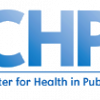

 Shared by Camille Anoll-Hunter
on Aug 8, 2023
Shared by Camille Anoll-Hunter
on Aug 8, 2023

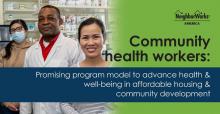
 Shared by Camille Anoll-Hunter
on Aug 3, 2023
Shared by Camille Anoll-Hunter
on Aug 3, 2023
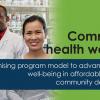
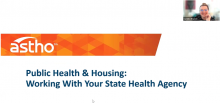
 Shared by Sandra Ware
on Apr 13, 2023
Shared by Sandra Ware
on Apr 13, 2023
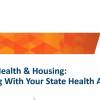

 Shared by Camille Anoll-Hunter
on Dec 15, 2022
Shared by Camille Anoll-Hunter
on Dec 15, 2022

 Shared by Camille Anoll-Hunter
on Nov 8, 2022
Shared by Camille Anoll-Hunter
on Nov 8, 2022
 Shared by Gabe Castro
on Sep 23, 2022
Shared by Gabe Castro
on Sep 23, 2022
 Shared by Gabe Castro
on Sep 23, 2022
Shared by Gabe Castro
on Sep 23, 2022
 Shared by Gabe Castro
on Sep 23, 2022
Shared by Gabe Castro
on Sep 23, 2022
 Shared by Camille Anoll-Hunter
on Sep 23, 2022
Shared by Camille Anoll-Hunter
on Sep 23, 2022
 Shared by Stephanie Gray
on Apr 18, 2022
Shared by Stephanie Gray
on Apr 18, 2022
 Shared by Kirsten Greenwell
on Jan 19, 2022
Shared by Kirsten Greenwell
on Jan 19, 2022
 Shared by Camille Anoll-Hunter
on Aug 26, 2021
Shared by Camille Anoll-Hunter
on Aug 26, 2021
 Shared by Camille Anoll-Hunter
on Aug 26, 2021
Shared by Camille Anoll-Hunter
on Aug 26, 2021
 Shared by Camille Anoll-Hunter
on Aug 26, 2021
Shared by Camille Anoll-Hunter
on Aug 26, 2021
 Shared by Kirsten Greenwell
on Jul 30, 2021
Shared by Kirsten Greenwell
on Jul 30, 2021
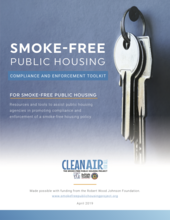
 Shared by Jackie Siewert
on Oct 3, 2019
Shared by Jackie Siewert
on Oct 3, 2019
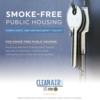

 Shared by Housing Is
on Jun 13, 2019
Shared by Housing Is
on Jun 13, 2019

 Shared by Housing Is
on Jun 13, 2019
Shared by Housing Is
on Jun 13, 2019
 Shared by Housing Is
on Jun 13, 2019
Shared by Housing Is
on Jun 13, 2019

 Shared by Housing Is
on Jun 11, 2019
Shared by Housing Is
on Jun 11, 2019

 Shared by Housing Is
on May 23, 2019
Shared by Housing Is
on May 23, 2019
 Shared by Housing Is
on May 23, 2019
Shared by Housing Is
on May 23, 2019

 Shared by Housing Is
on May 2, 2019
Shared by Housing Is
on May 2, 2019

 Shared by Housing Is
on May 2, 2019
Shared by Housing Is
on May 2, 2019
 Shared by Housing Is
on May 1, 2019
Shared by Housing Is
on May 1, 2019